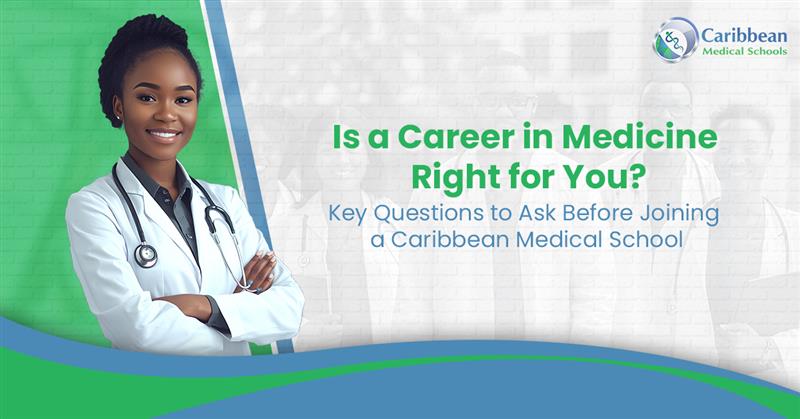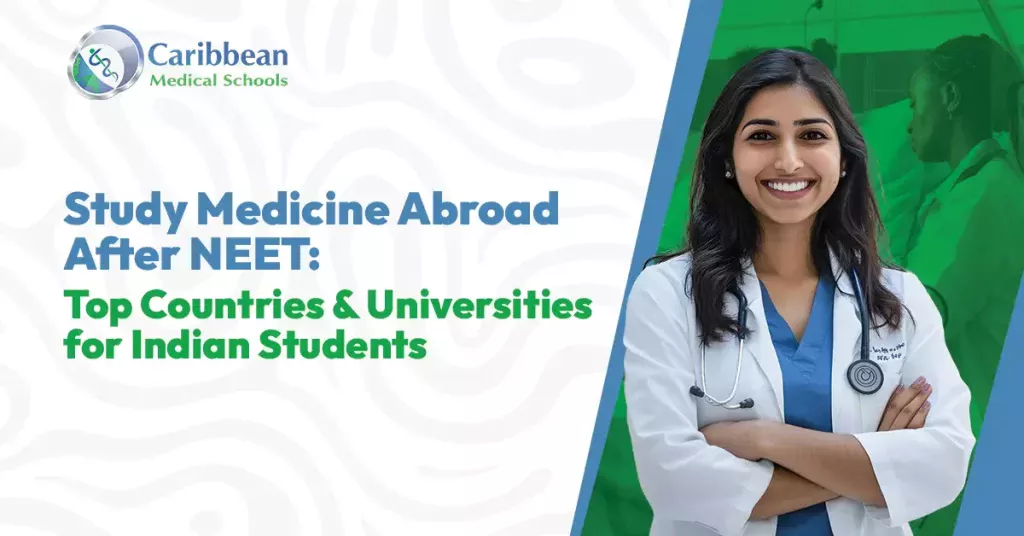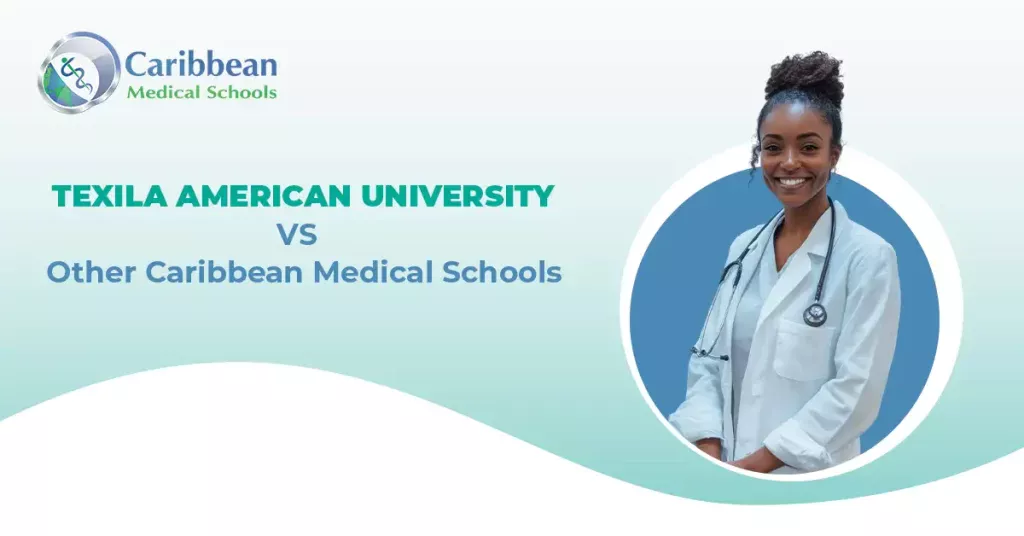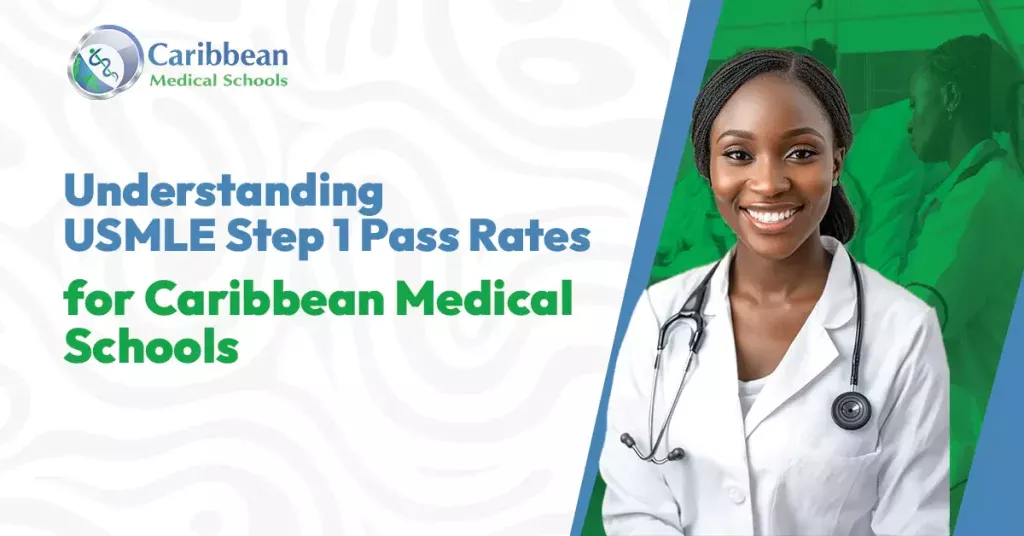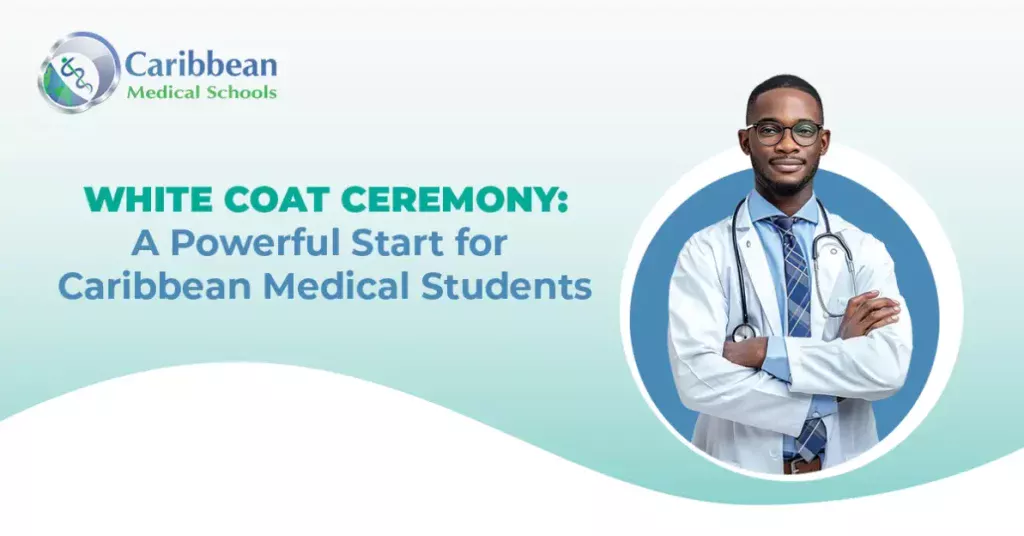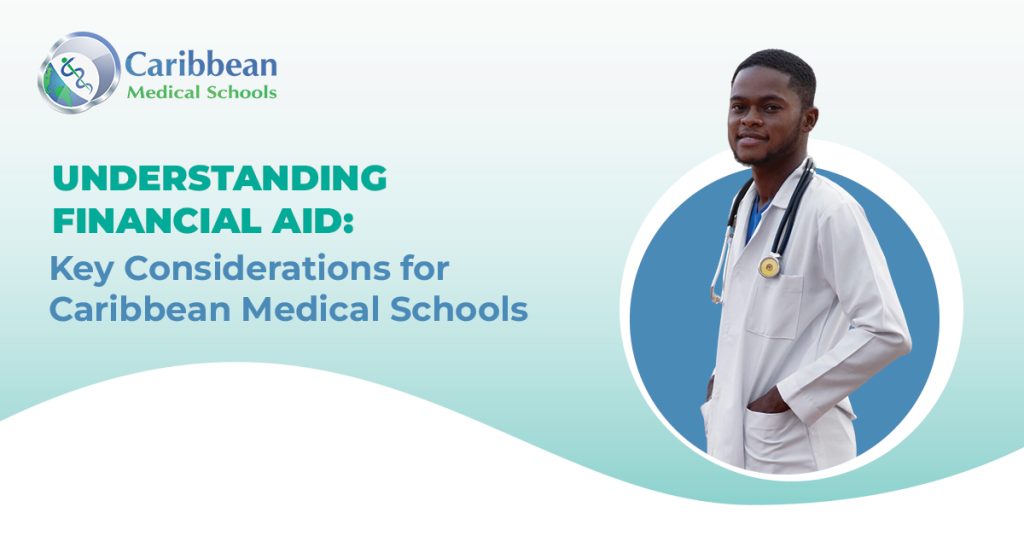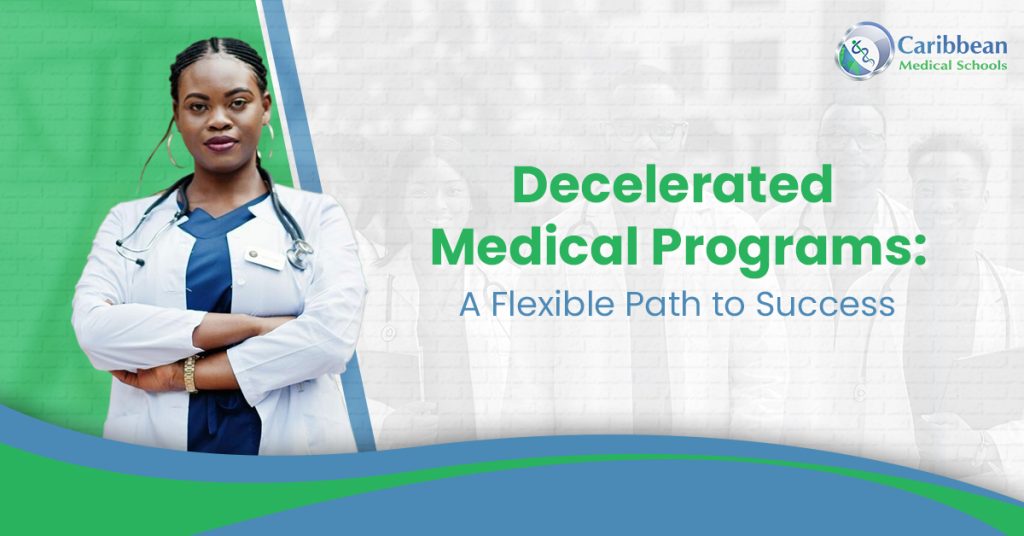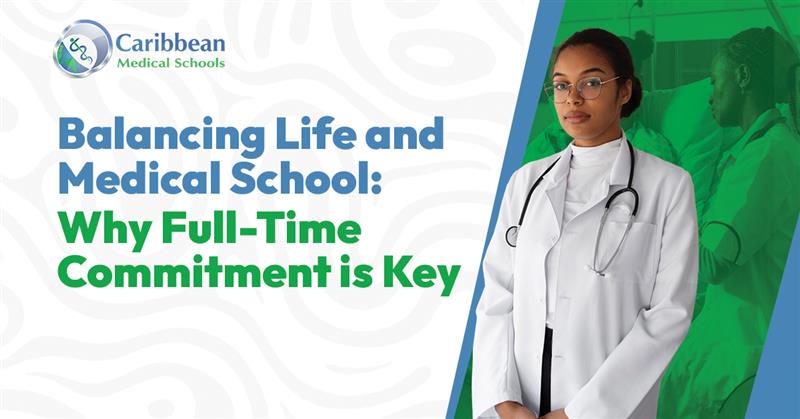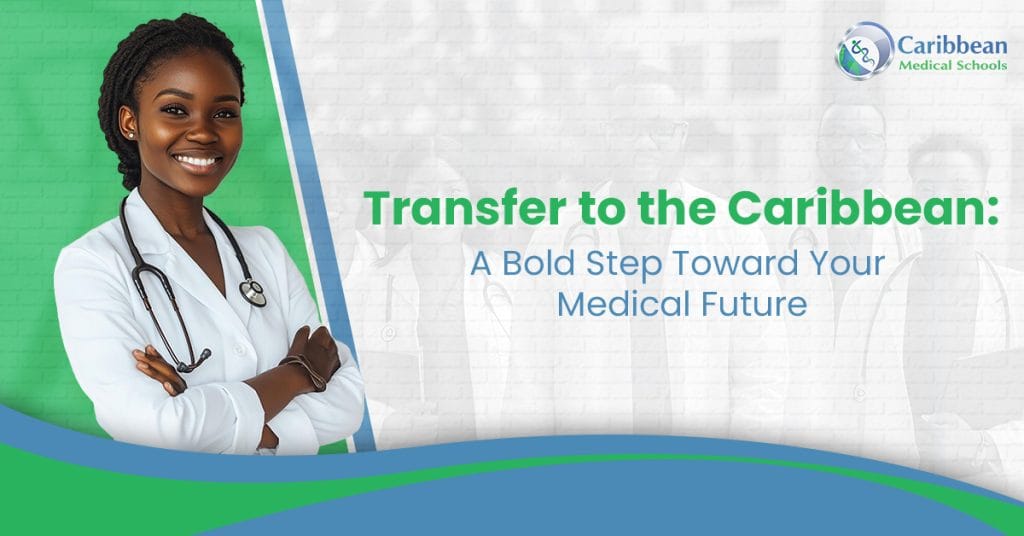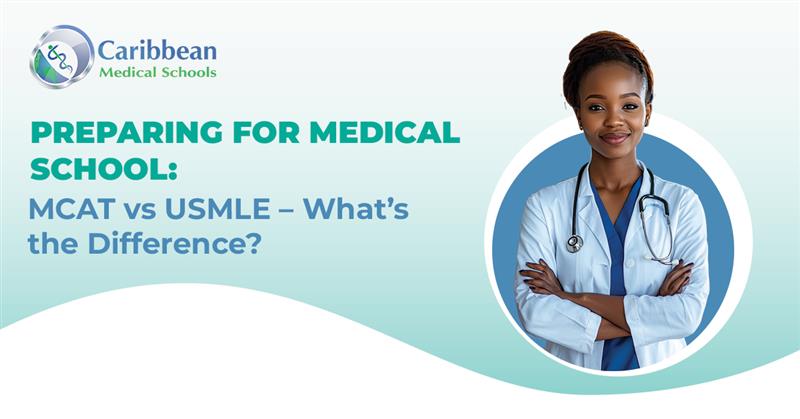Blog Summary
Pursuing a future in healthcare is a major commitment, and it’s not a decision to take lightly. Caribbean medical schools offer aspiring physicians a valuable pathway, but they also come with their unique set of challenges and rewards. To help you decide if this path aligns with your goals, let’s explore some crucial questions that can guide you in making an informed choice about a career in medicine.
Table of Contents
1. What Motivates You to Study Medicine?
One of the most important questions to ask yourself is why you’re drawn to this field. Are you motivated by a deep-seated desire to help others, or do you feel societal pressure or see it as a prestigious choice? True success in medicine comes from a mix of compassion, resilience, and a passion for continual learning. Without these, the challenging journey may feel overwhelming. Before applying, make sure you are driven by a genuine interest and the right reasons.
2. Are You Academically Ready for the Demands of Medical School?
Medical school is notoriously challenging, and Caribbean programs are no exception. You’ll be tackling demanding subjects like anatomy, physiology, and clinical sciences, which require a strong academic foundation. Reflect on your study habits, time-management skills, and adaptability in handling a rigorous workload. Success in a career in medicine often hinges on discipline and the ability to stay committed, especially in a new environment.
3. Have You Considered the Financial Aspects of Medical School?
The financial commitment required for a medical degree is significant, whether you’re studying domestically or in the Caribbean. Tuition fees, living expenses, and additional costs can quickly add up. Student loans are an option, but they can create long-term financial obligations. Be sure to research financial aid options, scholarships, and loan repayment requirements to understand the potential impact on your future.
4. Are You Prepared for the Lifestyle and Training Demands?
Pursuing a degree in medicine involves not only years of study but also an intensive training period in residency, where long hours and high-stakes situations are common. Caribbean schools provide a robust foundation for this journey, but students must be mentally prepared for the high demands that come after graduation. Assess if you’re ready for this demanding lifestyle, as it requires stamina, dedication, and a high level of responsibility, all key traits for anyone considering a career in medicine.
5. Do You Understand the Path to Practicing in the U.S. or Canada?
If your goal is to practice medicine in the U.S. or Canada, it’s important to research the licensing pathways for these countries. Many Caribbean medical programs offer strong preparation for USMLE and the MCCQE, but you’ll want to confirm the accreditation and reputation of your chosen school. Understanding this pathway can help you ensure your program aligns with your professional goals. According to the 2022 NRMP Charting Outcomes in the Match, 61.4% of international medical graduates (IMGs), including many Caribbean graduates, successfully matched into residency programs in the U.S. Explore the full report here to understand match rates and requirements.
6. Are You Ready for Life in a Different Environment?
Studying in the Caribbean is an adventure, but it also means adapting to a new culture and lifestyle. The tropical climate, diverse cultures, and perhaps a slower pace of life can be both exciting and challenging. Ask yourself if you’re prepared to live away from familiar surroundings, and if you’re excited by the opportunity to experience a new culture. Having flexibility and maintaining a positive mindset will support you thrive in this environment, and building resilience in unfamiliar settings is valuable preparation for a medicine.
7. Do You Feel Comfortable Working Closely with Patients?
Healthcare is ultimately about people. Whether during clinical rotations or in your future career, interacting with patients is a crucial aspect of training. Clear communication, empathy, and the ability to stay calm in high-pressure situations are essential. If you feel energized by the idea of helping others and can build rapport with patients from diverse backgrounds, this is a promising sign that you’ll thrive in this field.
8. Have You Researched the Best Caribbean Medical Schools?
Not all Caribbean programs are the same, and choosing the right one for your goals is essential. Some have a strong track record of high USMLE pass rates and established partnerships with U.S. hospitals for clinical rotations. Research your options thoroughly, looking into accreditation status, residency match rates, and student satisfaction. Selecting a well-regarded program will set you up for success both during and after medical school.
9. Do You Have a Support Network?
The journey through medical school is demanding, and a strong support network can make all the difference. Having friends, family, and mentors to lean on can help you through challenging times. It’s also beneficial to connect with current or former students who understand the unique challenges of Caribbean medical schools and can provide guidance along the way.
10. Are You Committed to Lifelong Learning?
The healthcare field is constantly evolving. To provide the best care for patients, doctors must stay updated with new research and advancements. If you have a passion for ongoing learning, this is a strong indicator that you’re well-suited for a career in medicine. Caribbean medical schools provide a solid foundation, but your long-term success in the field will depend on your commitment to ongoing improvement.
Final Thoughts
Deciding whether to pursue a medical degree, especially through a Caribbean school, is a significant choice that requires careful thought and self-assessment. Caribbean schools can offer an excellent path toward becoming a doctor, but only if you are ready for the journey and committed to your goals. Considering these questions will help you determine if this career is the right fit for you.

